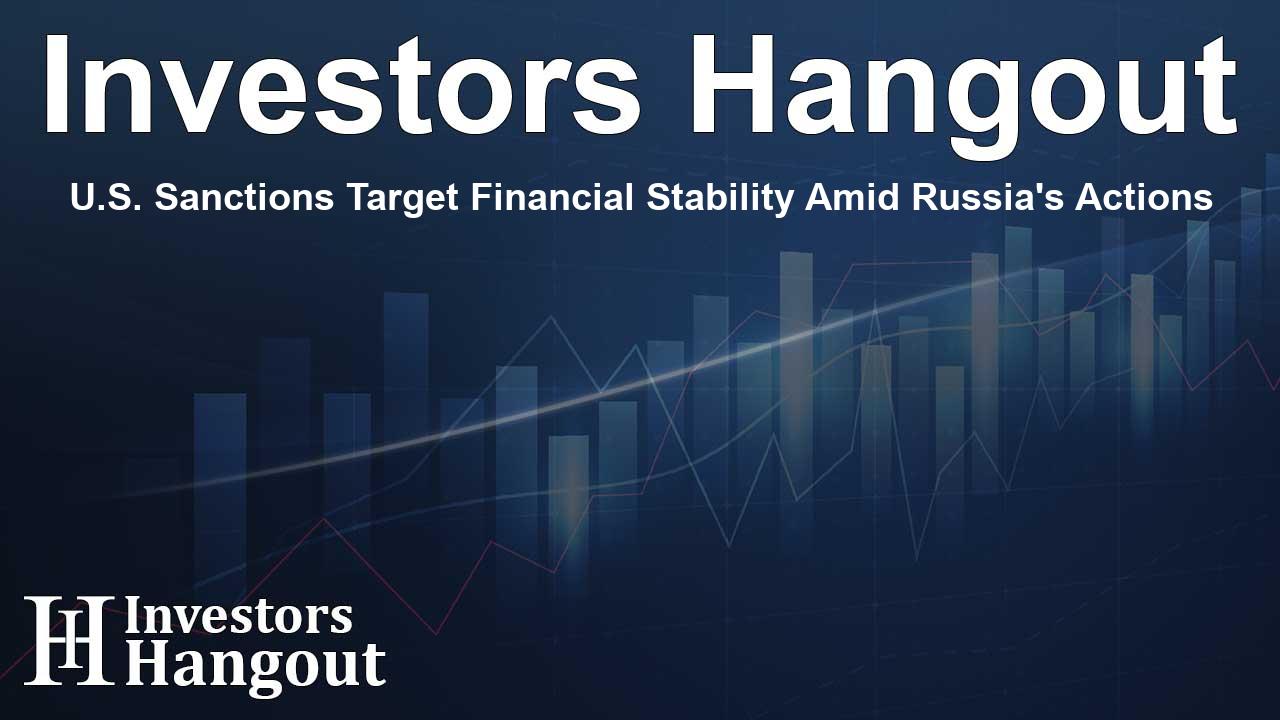U.S. Sanctions Target Financial Stability Amid Russia's Actions

Introduction to Recent Sanctions Against Gazprombank
The U.S. Department of the Treasury’s Office of Foreign Assets Control (OFAC) has rolled out an extensive set of sanctions aimed at Russia’s financial sector, focusing primarily on Gazprombank. This strategic move responds to ongoing geopolitical tensions and is designed to restrict Russia's access to global financial resources.
Sanction Details and Their Implications
Gazprombank, recognized as one of Russia's largest financial institutions, has found itself under the microscope along with over 50 other Russian financial entities and a group of 15 finance officials. These sanctions are aligned with commitments made by the G7 nations, aiming to rein in Russia’s financial capabilities amid its military actions.
Significance of Gazprombank
As a crucial player in Russia’s financial system, Gazprombank has served as a vital channel through which the Russian government has financed military operations. The latest sanctions also encompass six foreign branches of Gazprombank based in various locations, such as Luxembourg and South Africa, all facing restrictions due to their ownership ties to the primary institution.
Licenses and Transitions
In an effort to facilitate a transition away from Gazprombank, OFAC has issued general licenses. These licenses enable companies and individuals to wind down their transactions involving the bank and its subsidiaries. Such measures permit essential divestment from any equity or debt securities associated with Gazprombank, demonstrating a careful approach to reduce disruption in diplomatic banking activities.
Foreign Financial Institutions at Risk
Another critical aspect of this situation involves Russia’s alternative to the SWIFT system, known as the System for Transfer of Financial Messages (SPFS). Foreign financial institutions that join SPFS could find themselves exposed to new sanctions risks, as it is a tactic used by Russia to maintain financial ties while attempting to sidestep existing sanctions.
Designation of Additional Entities
Furthermore, over 40 Russian securities registrars have been designated in response to Russia’s attempts to avoid sanctions, particularly concerning the National Settlement Depository. OFAC has diligently updated its FAQ section to provide clarity on the implications for securities held at these registrars, offering guidance to navigate these complex financial waters.
Central Bank Officials Involved
The sanctions extend to additional officials from the Central Bank of the Russian Federation (CBR), primarily targeting those who play a role in sustaining Russia’s financial connections overseas or creating alternative funding streams for military purposes. This move underscores a significant effort to limit military funding and technological advancements through financial channels.
Statements from U.S. Officials
U.S. Treasury Secretary Janet L. Yellen emphasized the intent behind these sanctions, stating that they aim to "further diminish and degrade Russia’s war machine.” She noted theimportance of preventing the Kremlin from finding ways to bypass U.S. sanctions, reinforcing the commitment to uphold international financial integrity.
Blocking Properties and Interests
The recent sanctions dictate that all properties and interests owned by the targeted individuals and entities within U.S. territory must be blocked and reported to OFAC. This action encompasses any entities that have 50% or more ownership by the blocked parties, tightening the financial noose around those sanctioned.
Conclusion and Future Considerations
The U.S. Treasury's approach reflects a dual motive of promoting positive behavioral changes rather than strictly punitive measures. There is a pathway for individuals to be removed from the sanctions list if they demonstrate a change in alignment with legal standards, thereby navigating a complex landscape of international finance and diplomacy.
Frequently Asked Questions
What are the recent sanctions imposed by the U.S.?
The U.S. has imposed sanctions primarily targeting Gazprombank and over 50 other Russian financial entities to limit Russia's access to global financial resources.
How do these sanctions impact Gazprombank?
Gazprombank is faced with restrictions that could significantly hinder its operations, impacting its ability to conduct international transactions.
Why is Gazprombank significant in Russia's financial ecosystem?
It is one of Russia's largest banks and plays a crucial role in financing government military operations and maintaining economic stability.
What is the System for Transfer of Financial Messages (SPFS)?
SPFS is an alternative network to SWIFT that Russia uses to manage financial communications and could pose risks for foreign financial institutions that engage with it.
Can sanctions be lifted from designated individuals or entities?
Yes, the U.S. Treasury may remove individuals from the sanctions list if they exhibit a change in behavior consistent with the law.
About Investors Hangout
Investors Hangout is a leading online stock forum for financial discussion and learning, offering a wide range of free tools and resources. It draws in traders of all levels, who exchange market knowledge, investigate trading tactics, and keep an eye on industry developments in real time. Featuring financial articles, stock message boards, quotes, charts, company profiles, and live news updates. Through cooperative learning and a wealth of informational resources, it helps users from novices creating their first portfolios to experts honing their techniques. Join Investors Hangout today: https://investorshangout.com/
Disclaimer: The content of this article is solely for general informational purposes only; it does not represent legal, financial, or investment advice. Investors Hangout does not offer financial advice; the author is not a licensed financial advisor. Consult a qualified advisor before making any financial or investment decisions based on this article. The author's interpretation of publicly available data shapes the opinions presented here; as a result, they should not be taken as advice to purchase, sell, or hold any securities mentioned or any other investments. The author does not guarantee the accuracy, completeness, or timeliness of any material, providing it "as is." Information and market conditions may change; past performance is not indicative of future outcomes. If any of the material offered here is inaccurate, please contact us for corrections.